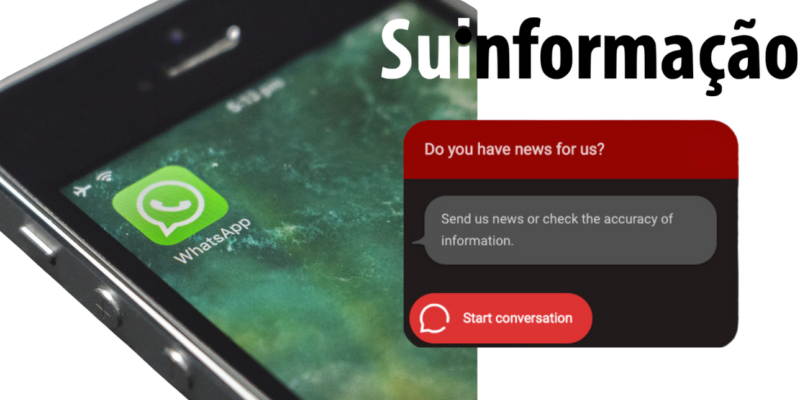Portugal: Journalists developed a WhatsApp chatbot with local communities in Algarve

A group of journalists decided to improve their working conditions by developing their own online newspaper Sul Informação in the Algarve region. Through funding from the Local Media for Democracy (LM4D) project, Sul Informação developed an audience engagement tool called “Do You Have News for Us?” to create a direct communication channel between the public and the newsroom.
Readers send information that will be verified and, eventually, transformed into news by the journalists. This allows the newspaper a new way to get information about what is happening in the municipalities in the Algarve and Baixo Alentejo.
The tool works via a WhatsApp widget on the Sul Informação website or users can contact +351 916306885 directly via the app. The chatbot prompts users to send all information that the journalist would require to investigate the story. The user can also submit multimedia content, including videos and documents.
Nuno Costa, journalist and project manager at Sul Informação, explained that “at the local level, there are not many newspapers and radios in this region and the few existing independent ones only have one or two full-time journalists. That’s why we developed a tool to give direct contact to people in the region where there is no independent media.”
A recent successful story was published in March 2024 on crowds at Faro airport, just two months after the tool was launched. A journalist would not have been able to obtain the photos without the tool and the story remained the most read on the website some days after it was published. “This was an example where we could react quickly,” explained Costa. “We have some submissions that we are still investigating.”
“This crowdsourcing solution is innovative and sophisticated while easy to use, which might be of interest for other media,” said Iryna Vidanava, media viability advisor at IMS for the LM4D project. “It is integrated into WhatsApp, the most popular messenger app in Portugal and allows readers to submit local news, validate information and provides the editorial team with feedback.”
The journalists all interact with this tool and are currently being trained on it. Once the LM4D project ends for Sul Informação this May 2024, their advertising model will sustain the continued testing, development and training required for this tool. But the team is always adapting and keeps a flexible work culture to keep up with changes.
“Since we were created, we were always trying to give something new to our audience,” explains Costa. For example, during the pandemic they launched a daily digital newsletter for their subscribers. “We can see that creating these types of products has a commercial impact; it makes us the reference newspaper in the South of Portugal, making people and entities more interested in advertising with us.”
When they launched Sul Informação, Portugal was facing a massive economic crisis. Not only was the timing risky, but online media was not yet popular and they were met with scepticism for not developing print editions of their newspaper. Yet today they are the reference newspaper in the South of Portugal and one of the only independent media organisations in the region.
According to the 2023 Media Pluralism Monitor report, political independence in the digital environment in Portugal is at 68% and a cause for concern. Disinformation is not regulated online, including manipulating perceptions on political issues.
Research on news deserts in the European Union (EU) by the Centre for Media Pluralism and Media Freedom (CMPF), as part of the Local Media for Democracy (LM4D) project, found that in Portugal, local news media are indirectly pressured by commercial entities, municipalities or sources of their close ties, despite a medium risk score overall in editorial independence (31%).
“The trend in the media in Portugal is the opposite of what Sul Informação shows us. Regional and local media in our country have been disappearing in recent years due to a lack of investment and support for the media, changes in information consumption habits and the general public’s devaluation of the journalistic profession in Portugal. That’s why our Union looks at this specific case as an example and an inspiration, a source of resilience and resistance, which are essential to the practice of journalism. This media outlet helps to reduce distances in the territory, bringing to the media landscape a region of the country that is forgotten, marginalised and rarely appears in the news. Sul Informação gives visibility to stories and people that are never covered in the national media or media mainstream.” – Ana Isabel Costa, Vice-President of Sindicato dos Jornalistas (SJ).
The Local Media for Democracy project is an 18-month project co-funded by the European Commission and launched by a consortium of partners: the Journalismfund Europe, the Centre for Media Pluralism and Media Freedom (CMPF), International Media Support (IMS), and the European Federation of Journalists (EFJ).






